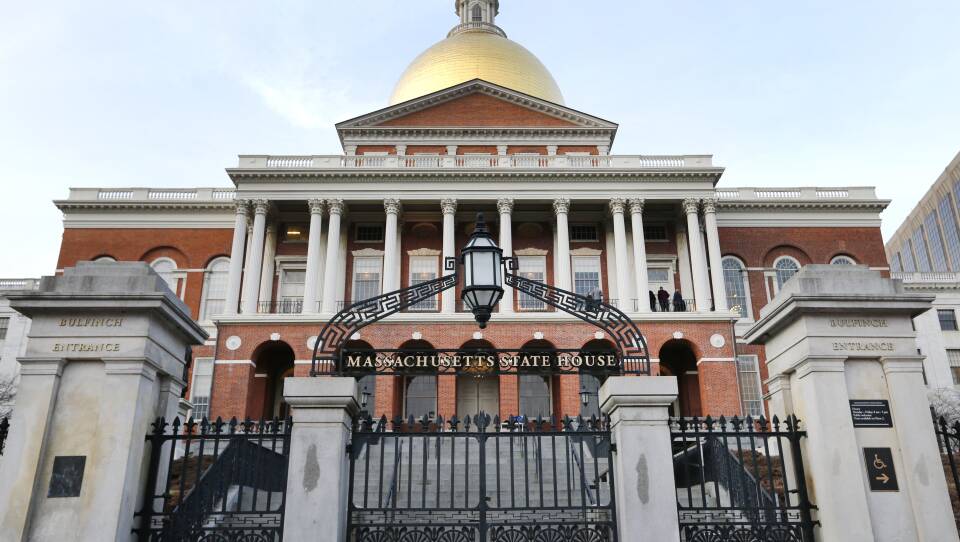Legislative leaders are finally deliberating over a final annual budget plan to send to Governor Charlie Baker. Once that's out of the way, attention will return to all the public policy and legislative priorities that lawmakers have been putting off until the last minute. GBH Morning Edition host Joe Mathieu spoke with GBH News State House reporter Mike Deehan about some of the work lawmakers are trying to cram in during the last month of a two-year session. The transcript below has been edited for clarity.
Joe Mathieu: The legislature started off this session in January 2019. It was a very different world then. Almost two years ago, Mike, both Senate President Karen Spilka [and] the speaker of the House Robert DeLeo laid out their priorities at the time. What were those commitments and how many have been honored?
Mike Deehan: Well, I looked back at what Karen Spilka, the Senate president, said her priorities were going to be way back in January and February 2019, and she said climate change, public transit, health care costs, prescription drug costs and education funding. So a lot of these sound familiar. And at the time, Spilka said that the time for small ideas and incremental change is over. So, of course, education funding got passed. It was really the only major legislative accomplishment of the first part of the session, and then the bottom fell out of the budget and they can't fund all of the new education funding because of COVID. Everything else on that list is tied up in one of five conference committees where the House and Senate are now supposedly hammering out an agreement so that the public will be able to see what the final legislative package is. But they've supposedly been doing that since August behind closed doors, just in private. And that's where we're at [with] 37 days left of this session. If House and Senate leaders can't get that together, though, it'll all get kicked down the line to late 2021, or even 2022.
Mathieu: I want to ask you about the speaker Robert DeLeo, as we were just talking this morning on Morning Edition: when's the last time you rode the T? For some people, it's not since before the pandemic — I'm one of them — and when you look back at that time, that was the story of our time. I know the speaker was talking a lot about it.
Deehan: Yeah, that was his main priority earlier on in the session, and the House did pass a tax increase bill that would fund the MBTA and a bunch of other transportation projects. But, of course, that got shelved when the Senate never took it up, and then COVID changed the MBTA completely. Now they have no riders and a [bigger] deficit than they had before. DeLeo also, though, he had a big climate change package that is, again, part of these last minute deliberations between the two chambers. So if either leader wants to come out and say, "I got my priorities done," it's going to come in this last month, this 24th month that they've been at it.
Mathieu: Because COVID kept this from taking place, right?
Deehan: Yes. The second half of this session has been dominated by COVID. Now it's not to say that they haven't been active. Mail-in balloting was not something that they were thinking about earlier on in the session and had to switch to that. All of these relief funds. spending all this federal money, everything COVID that they've been occupied with all this year has really sidelined these other priorities. But now really is the first and only opportunity they'll have to resume talks on these big ticket items that two years ago were the absolute most important things.
Mathieu: Is there a chance the legislature could still come up with some compromises, maybe put some new laws on the books on any of these items?
Deehan: It could. Again, it's those five conference committees, there are six member committees between the House and Senate. The most talked about one is the police reform bill that we've talked about a lot. The House and Senate, though, they seem pretty intractably locked in a stalemate over how to oversee local police, who's going to be on the oversight board and whether or not to weaken protections police have from civil lawsuits. And honestly, hope is fading that they're going to even reach a compromise on that because the social moment that we had this summer is fading away. So maybe some things will get passed into law, but we might be looking at a busy 2021 because of 2019.
Mathieu: You can write the whole story for 2021 already when you consider the momentum that that cause had over the summer. Mike, lastly, how about the economic development bill that was so critical? Both chambers passed their own versions months ago.
Deehan: Yeah, this is probably the closest thing to a must-pass piece of legislation that they're dealing with right now, aside from the budget. It's kind of the brightest hope, I'd say. The bill has things like sports betting in it, it has Governor Baker's housing legislation that he's been trying to get passed for years and years. But it's important to note that all those other big priorities — climate, transportation, patient health care, prescription drugs — they're in those lesser hoped for conference committees. So economic development could get done; that's a lot of money going to a lot of different places. But when it comes to big reshaping policy, hope is dimming that real compromises between Democrats in the House and Democrats in the Senate are going to get done this year.





